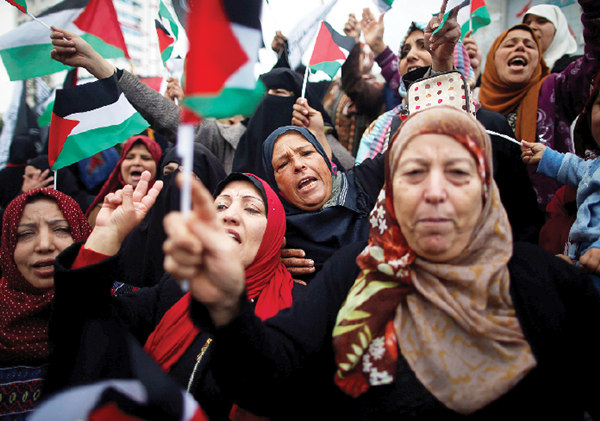The International Day of Solidarity with the Palestinian People is being observed today (Nov 29). In 1977, the United Nations General Assembly called for the annual observance of 29th November as the International Day of Solidarity with the Palestinian People.
In his message on the day, UN Secretary-General António Guterres said only constructive negotiations between the parties in good faith will bring about a durable solution of two states. He said Israeli settlement activities in the Occupied Palestinian territories have no legal validity.
The UN Secretary General said the intensification of illegal settlements, demolition of Palestinians’ homes and the pervasive sufferings in Gaza must stop.

Palestine Imbroglio
The Arab-Israeli peace process as we know it is dead, and Tel Aviv under Netanyahu has performed its last rites by crushing the Palestinians and burying the two-state solution. It seems the hopes raised by the Oslo process in the 1990s were false; all that the Palestinians have received in return for agreeing to make peace with Israel is more humiliation, more violence and more illegal annexation of their land.
Israel is the world’s only Jewish state, located just east of the Mediterranean Sea. Palestinians, the Arab population that hails from the land Israel now controls, refer to the territory as Palestine, and want to establish a state by that name on all or part of the same land. The Israeli-Palestinian conflict is over who gets what land and how it’s controlled.
Today, the West Bank is nominally controlled by the Palestinian Authority and is under Israeli occupation. This comes in the form of Israeli troops, who enforce Israeli security restrictions on Palestinian movement and activities, and Israeli “settlers,” Jews who build ever-expanding communities in the West Bank that effectively deny the land to Palestinians. Gaza is controlled by Hamas, an Islamist fundamentalist party, and is under Israeli blockade but not ground troop occupation.
The primary approach to solving the conflict today is a so-called “two-state solution” that would establish Palestine as an independent state in Gaza and most of the West Bank, leaving the rest of the land to Israel. Though the two-state plan is clear in theory, the two sides are still deeply divided over how to make it work in practice.
The alternative to a two-state solution is a “one-state solution,” wherein all of the land becomes either one big Israel or one big Palestine. Most observers think this would cause more problems than it would solve, but this outcome is becoming more likely over time for political and demographic reasons.